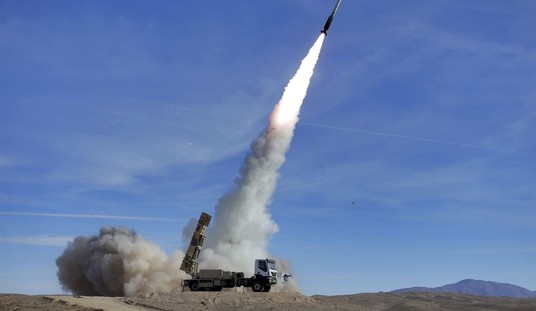Several U.S. military teams designed to deliver a quick response to crises in the wake of the Benghazi attack were on alert tonight as political unrest grew in Libya.
Reports said the U.S. Africa Command (AFRICOM) teams based in Stuttgart, Germany, were put on notice to be prepared to fly into the restive North African nation quickly if needed.
Militias demanding that all those who served in Moammar Gadhafi’s regime be banned from working in the new government laid siege to the Foreign Ministry and Justice Ministry starting April 28. After they got their wish with a law passed last Sunday, the gunmen refused to give up their siege.
Libyan Defense Minister Mohammed al-Barghathi, who served in Gadhafi’s Air Force yet like some military commanders also worked to oust the dictator, resigned before being talked into staying by Prime Minister Ali Zeidan.
“I will never be able to accept that politics be practiced by the power of weapons,” Barghathi told a news conference. “This is an assault against the democracy I have sworn to protect.”
Today the militias scattered as pro-government protesters overran them at the Foreign Ministry. Bombs went off outside two police stations in Benghazi.
The State Department updated its travel warning on Thursday after withdrawing some personnel on Wednesday.
“In the light of the current unsettled conditions around major anti-government demonstrations in Tripoli, the under secretary for management has approved the order of deparchement — departure of non-emergency personnel from Libya. As you know, the department’s paramount concern is the safety and the personal safety of all of our employees,” spokesman Patrick Ventrell said at the State Department briefing today.
“And so, at this time, we can confirm that a handful of our staff members have, indeed, departed Libya. Our embassy in Tripoli is still open and still functioning, OK?”
The travel warning advises U.S. citizens to “make their own contingency emergency plans, and maintain security awareness at all times.” The consular information for Libya seems to need some updating, though, as it mentions “in June 2012, an unknown group of attackers detonated an improvised explosive device outside the compound of the U.S. embassy’s office in Benghazi,” but not the Sept. 11 attack that left four Americans dead.
Britain announced that it is scaling back its diplomatic presence in Tripoli as well. “Given the security implications of the ongoing political uncertainty, the British Embassy is temporarily withdrawing a small number of staff, mainly those who work in support of Government Ministries which have been affected by recent developments,” the UK government said today. “The Embassy is open as usual, including for consular and visa services.” British presence in Benghazi is still “temporarily suspended.”
The day before this week’s Benghazi hearing, the Senate Foreign Relations Committee heard from Deborah K. Jones, former ambassador to Kuwait and President Obama’s pick to replace the late ambassador Chris Stevens in Libya. Only three senators showed up to the hearing.
Jones talked about her eagerness to get on the ground and pick up where Stevens left off.
Ranking Member Bob Corker (R-Tenn.) asked if she was underestimating the challenges there, especially in light of the fresh unrest. “It’s really not a government,” he said. “It’s almost remarkable that the country’s functioning.”
“I don’t know that we’ve underestimated,” said Jones. “I know we’ve had a setback these last 8-9 months without an ambassador on the ground… we’ve never won a battle we haven’t shown up for.”
On March 7, Gen. Carter Ham, commander of AFRICOM, told the Senate Armed Services Committee in his annual strategic report that “the September 2012 attack on the U.S. Special Mission Compound and Annex in Benghazi and the January 2013 attack on the British Petroleum oil facility in Algeria illustrate the growing threat posed by violent extremist organizations in Africa to U.S. citizens and interests.”
Ham stepped down from his command less than a month later.
“This network of al-Qa’ida affiliates has already developed into a threat to U.S. regional interests and if left unchecked, could pose a threat to Europe and the U.S. Homeland,” continued Ham’s 2013 AFRICOM Posture Statement.
Ham said the growing relationship with the Libyan Armed Forces “focuses on education and also emphasizes the strengthening of Libyan counter-terrorism capabilities.”
“The recent volatility in North and West Africa demonstrates the importance of sufficient Intelligence, Surveillance, and Reconnaissance (ISR) assets to cover multiple crises simultaneously. ISR capabilities are required to protect American interests and to assist our close allies and partners.”
The Benghazi investigation steered toward the Pentagon this week as it was revealed the Defense Department claims a classified timeline for the night of the attack doesn’t exist.
“The Department did not produce a formal classified timeline, but rather only draft working products to assist witnesses and briefers in preparation for numerous Congressional engagements,” Elizabeth King, assistant secretary of defense for legislative affairs, told House Armed Services Committee Chairman Buck McKeon (R-Calif.). “By practice, such draft working products are not distributed beyond DoD.”









Join the conversation as a VIP Member